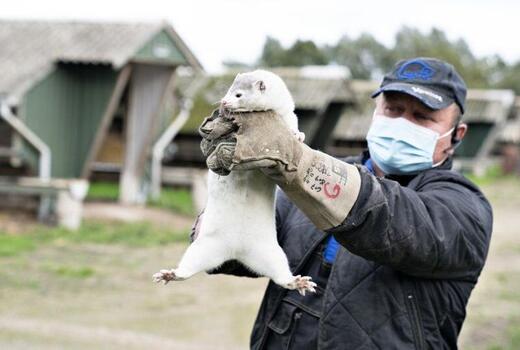|
One of the least-noticed effects of COVID isolation has been the lack of public mourning for people who have died over these past months, whether or not the pandemic played any role in their demise.
I just found out that Thane Tienson, a prominent Portland attorney who came from Astoria and never forgot his home, died suddenly at the age of 74. Thane was a robust and well-met fellow who made an impact on Oregon, the law, and Astoria. Like too many others during these plague times, he will be missed. I also learned, only through references in social media, that long-time coast TV journalist Dave Pastor died a few months ago. These trees did make a sound, even if nobody heard them fall in the forest of our lives. The Oregonian is running a ceaseless (and thus far unrebutted) war on what is left of Measure 11, re-passed by 75% of Oregon voters in 2000. The most recent piece is by a young man who is just finishing 17 years for a double manslaughter following previous violent felony convictions.
My response, originally accepted by the newspaper, "timed out" because there are more anti-victims op-eds slated for publication. So, here it is for you. :::: Thirty years ago Oregon’s violent crime rates were skyrocketing. Murders in the state’s most populous county were at an all-time high. Prison sentences were irrelevant; dangerous offenders cycled in and out of prison. Then citizens – not politicians or prosecutors – forged Ballot Measure 11. This law gave real time for real crime – eight years for armed robbery with a gun where the victim is injured, eight years for the rape of a child, 25 years for intentional murder. Measure 11 laid out minimum mandatory sentences for the worst crimes – regardless of the race or class of the offender. Now a chorus of felons, defense attorneys and social justice activists are clamoring to return to the days when a “20-year sentence” might only really mean eight months. Citizen support for Measure 11 has remained solid. When it first passed in 1994, it won with 64 percent. In 2000, opponents attempted to repeal it Measure 94. Voters said no by a three-to-one margin. Measure 11’s foes now are trying to side-step voters by going to the legislature. Twice in the past, legislators have chipped away at the law. Legislators are always looking to save money in one place to spend somewhere else. Minimum-mandatory prison sentences have been a convenient target. Many victims of violent crime are from the lower socio-economic classes. They don’t have well-financed lobbyists. In the 2021 legislative session expect to see and hear more stories like the one offered by multiple-felon Martin Lockett a few weeks ago in the Oregonian. Lockett opposes Measure 11, but he is an excellent example of why this law works. Lockett earned a 17-year sentence for robbery and the manslaughter of two people in 2003. The judge was required only to give him a single 7-½ year sentence for the manslaughters but gave him a longer sentence because of his prior felonies and the heinous nature of his new conviction. Even Lockett conceded he was no stranger to the law. He had already been given second chances for previous crimes and was on probation. He offered a well-worn excuse for killing two people, saying he “turned over a new leaf – until my troubled relationship with alcohol led me into the most catastrophic mistake one can make while intoxicated.” Under Measure 11, Lockett could no longer act like a passive actor being led astray. The substantial sentence he received undoubtedly had a sobering effect on him. It forced him to realize that if he did not change, he would likely spend the rest of his life in and out of a cell. While in prison, he earned a master’s degree and developed new habits. Now that he will be released from Deer Ridge in June, he displays arrogance when he talks about what he learned while in prison: “My transformation was solely of my own doing, not because any mechanism in the system aided or encouraged it.” What we know with certainty is that while Lockett was in prison, he did not kill or rob again. He did not hurt anyone in the general public. If his past is any indication, had there been no Measure 11 he would have once again paroled quickly and resumed his bad habits. Lockett is proud of how progressive Oregon can be and hopes it will end Measure 11. When he is finally released, perhaps he can take a stroll through downtown Portland. He may be surprised at what justice can look like with a progressive District Attorney, like Mike Schmidt. I hope Lockett settles down into a law-abiding life. If he does, he may find a new appreciation for why Oregonians voted for Measure 11. ### People’s tastes and values can change over decades. Mink have an almost unique susceptibility to COVID-19, getting it from and spreading it to humans. Mink farming is an industry whose day is done. Animal Wellness Action encourages the buyout of mink farms.
Guest column for The Astorian January 15, 2021 "The time for mink farms has passed" Contagious not just to people, COVID-19 is devastating captive mink populations across the world. Prominent veterinarians and scientists believe mink are almost uniquely capable of animal to human transmission. There is even concern that such transmission could create a mutant strain of COVID that would be resistant to the vaccine. Clatsop County is home to two mink farms, both legal businesses. The Oregon Department of Agriculture disclosed that a mink farm was placed in quarantine in November after a farmer and several mink tested positive for the virus. The state has not publicly disclosed the location of the farm, citing medical privacy reasons. While the state veterinarian said there was “no evidence that SARS-CoV-2 is in circulation or has been established in the wild,” others pointed out that makes it appear infected mink escaped. In December, The New York Times reported on the extraordinary events related to mink farming and COVID-19 cases from Denmark: “Not only are mink the only nonhuman animal known to become severely ill and die from the virus, they are the only animal known to have caught the virus from humans and then passed it back. What terrified Danish officials was that the virus that jumped back to people carried mutations that seemed as if they might affect how well vaccines work, although that worry has faded.” In response to a series of outbreaks from Denmark to Greece to Lithuania, European countries have conducted mass slaughters of thousands of the animals, with an astonishing 17 million mink killed in Denmark alone. The Netherlands has taken it a step further. There, the government has banned all fur farming effective in March. While concerns over animal cruelty were factors in the original discussion, the impetus for the expedited action was the concern about mink farms becoming superspreader venues. The concerns about mink farming and COVID-19 warrants immediate action in the U.S., just as we’ve seen in Europe. But even without that perilous circumstance, there are plenty of good reasons to ban fur farming. It is an outdated business, much like ivory harvesting, Styrofoam packaging and cigarette advertising. As we are told in a widely accepted text of spiritual wisdom, “For everything there is a season.” For our health and out of respect for the nearly universal aversion to animal cruelty, government should begin a buyout of all mink farms, fairly compensating the breeders and permanently ending the practice. This process has been used in other parts of the world to discourage farmers of plants like coca and poppies that are easily made into cocaine and heroin. The world is replete with examples of past practices considered commonplace, if considered at all, that for reasons relating to health, the environment or changing sensitivities, are simply no longer appropriate. There is no need to engage in moral virtue signaling, either by condemning those who wear mink, or by refusing to acknowledge that mink farming has been a legal industry. As Wayne Pacelle, president of the Center for a Humane Economy notes, “Minks are superspreaders of this virus. They are also wild animals, and they don’t belong jammed in cages on factory farms.” Joshua Marquis, a former Clatsop County district attorney, is director of legal affairs for Animal Wellness Action. |
JOSHUA MARQUIS on
criminal justice, animal welfare, and the nature of the relationship between popular culture and the law. Archives
March 2024
See the Archives page for an index of all posts, including those prior to January 2019.
Categories |


